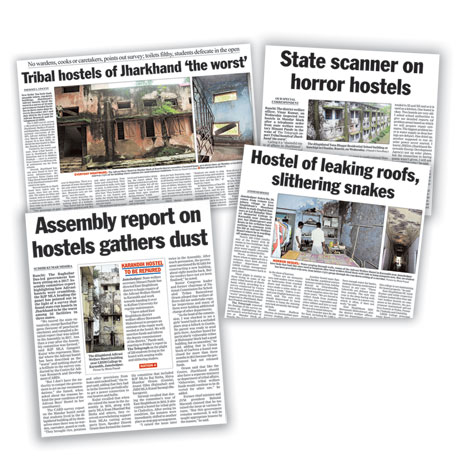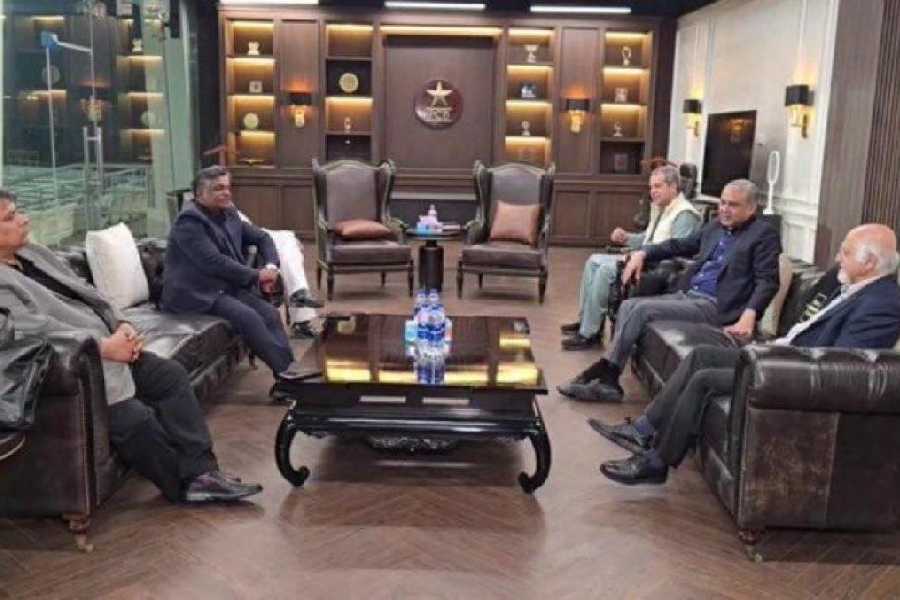
New Delhi: Former Union tribal affairs and panchayati raj minister V.K.C.S. Deo feels that the first step to save crumbling tribal hostels and schools is a change in the mindset of the government, both the Centre and the state, so that tribal children aren't looked at a future vote banks.
Responding to the findings of a survey of tribal hostels that found inhuman conditions prevalent in Jharkhand's hostels, Deo told The Telegraph: "The Centre's role is framing policies and allocating funds. As a minister, I sent inspection teams and kept reminding states. Several states did not go by these guidelines. The mindset of the government - state and Centre - have to change."
Deo explained that the surveyed states - Rajasthan, Madhya Pradesh, and Jhakhand - in addition to Chhattisgarh were lagging behind other sta-tes, particularly those in the So-uth, in operating hostels and schools for tribal children.
"During the UPA's tenure, we had schemes like the integrated action plan and the backward regions grants fund. These schemes have been stopped. Funds for tribal schools are meagre compared to the magnitude of the problem (crumbling infrastructure)," he noted on Thursday.
While allocation to tribal education had increased, that actual funds released for hostels for ST students had gone down from Rs 101 crore in 2010-11 to Rs 20 crore in 2016-17.
He said the Centre could do two things. "Pull the purse strings, which doesn't have much teeth as the tribal ministry doesn't have a large budget and states have other sources of draw money, and threats. But a real change is seen when gram sabhas are involved," he added.
"The Panchayat Extension to Scheduled Areas Act provi-des for gram sabhas in not just panchayats, but every adivasi settlement, however small. Wh-ere these meetings are genuinely held there is usually no party politics because it concerns the future of the community. As long as the settlement exists, and is not submerged or evicted, gram sabhas are an effective continuous assessment body."
Deo sees a conspiracy in dilution of constitutional safeguards for scheduled areas including Jharkhand, and crumbling hostels was just one aspect of that. "Tribals are in the way of the mining mafia. Weakening schools and hospitals in these areas and rejection of claims of community rights under the Forest Rights Act are a conscious plan by this government. Many of our people in Jharkhand will be left with no better employment than as domestic workers in Calcutta or labourers in mines. Are these hostels, without toilets, and lights and proper food any better than Nazi concentration camps?" he said.
The Jharkhand model of turning the hostels over to RSS-linked NGOs, he said, would make things worse. "A tenth of NGOs do good work. It is impractical to judge which ones are better. These hostels are public assets. The state has to fix them and run them."
Former director of Ranchi's Tribal Research Institute Prakash Chandra Oraon said he had lived in Ranchi's Yaduvansh Adivasi College Hostel in the 70s, but rued that staff vacancies had not been filled.
"Tribal youths come to hostels for the facilities, for food and clothes. Youths who finish school don't get jobs. In a dilapidated building full of children without a caretaker what prevents young unemployed men from taking up arms for the Maoists and recruiting these children?" he said.










